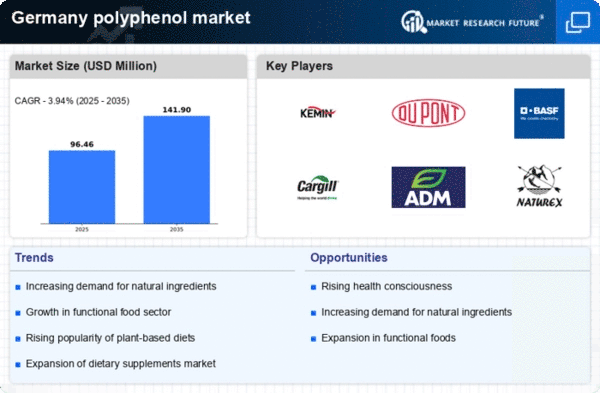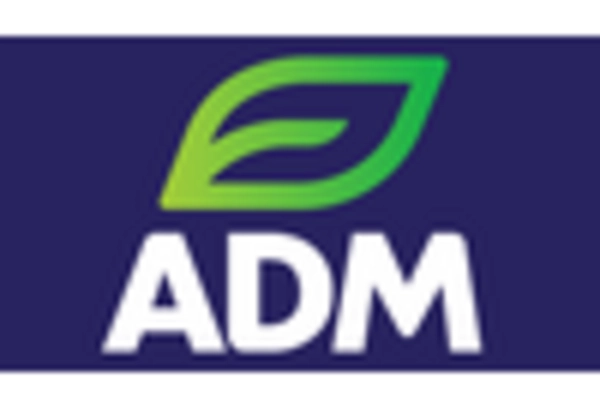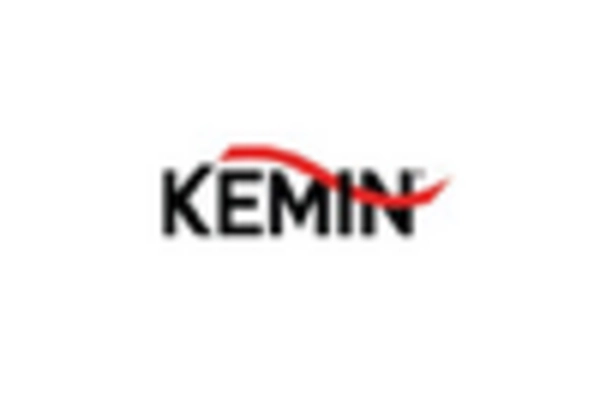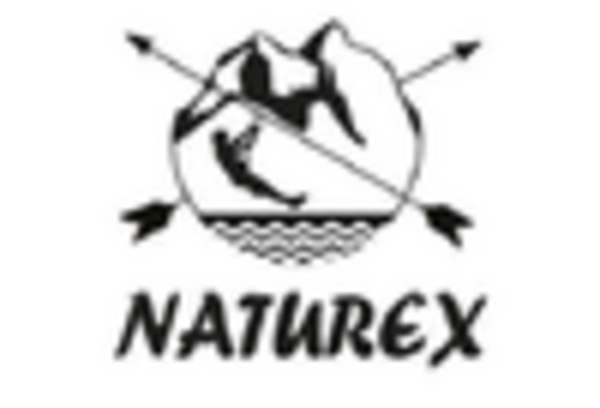The polyphenol market in Germany is currently experiencing notable growth, driven by increasing consumer awareness regarding health benefits associated with polyphenols. These compounds, found abundantly in fruits, vegetables, and beverages, are recognized for their antioxidant properties and potential to reduce the risk of chronic diseases. As a result, there is a rising demand for polyphenol-rich products, including dietary supplements and functional foods. This trend is further supported by a shift towards healthier lifestyles, with consumers actively seeking natural ingredients that promote well-being. Additionally, the food and beverage industry is adapting to these preferences by incorporating polyphenols into their offerings, thereby enhancing product appeal and market competitiveness. Moreover, regulatory support and initiatives aimed at promoting health and nutrition are likely to bolster the polyphenol market. The German government has been proactive in encouraging research and development in the field of functional foods, which may lead to innovative applications of polyphenols. Furthermore, collaborations between academic institutions and industry players are expected to yield new insights into the health benefits of these compounds, potentially expanding their use in various sectors. As the market evolves, it appears that the focus on sustainability and natural sourcing will also play a crucial role in shaping consumer choices and industry practices, indicating a promising future for the polyphenol market in Germany.
Rising Demand for Natural Ingredients
There is an increasing consumer preference for products containing natural ingredients, particularly polyphenols. This trend reflects a broader shift towards health-conscious choices, with individuals seeking out foods and supplements that offer functional benefits. As awareness of the health advantages of polyphenols grows, manufacturers are likely to respond by enhancing their product formulations to include these compounds.
Innovation in Product Development
The polyphenol market is witnessing a surge in innovation, particularly in the development of new products that incorporate polyphenols. Companies are exploring various applications, from beverages to snacks, aiming to attract health-oriented consumers. This trend suggests a dynamic landscape where creativity in product offerings could significantly influence market growth.
Regulatory Support for Functional Foods
Regulatory frameworks in Germany are increasingly supportive of functional foods, which often contain polyphenols. This environment encourages research and development, fostering advancements in the understanding of polyphenols' health benefits. As regulations evolve, they may facilitate the introduction of new polyphenol-based products, further stimulating market expansion.
















